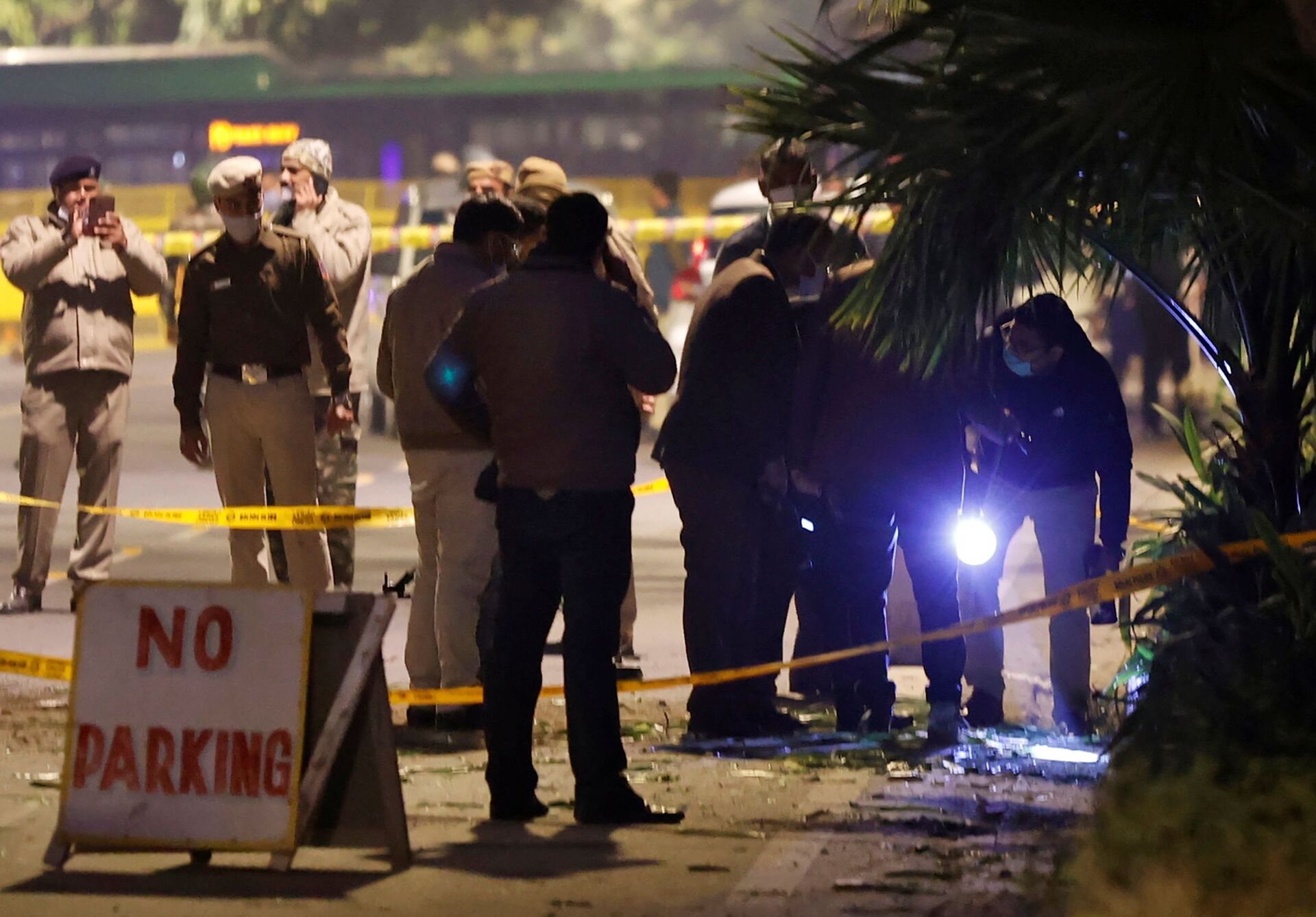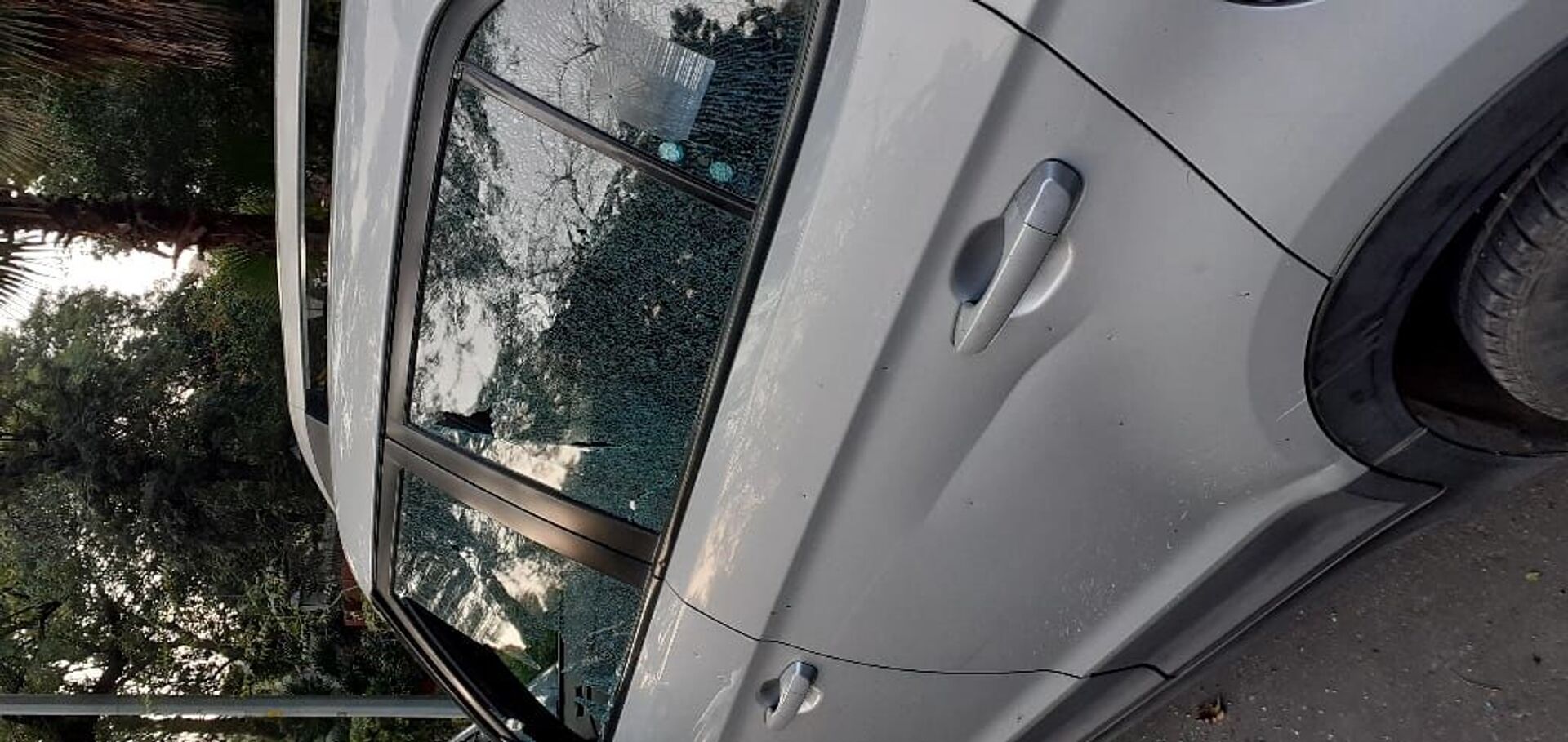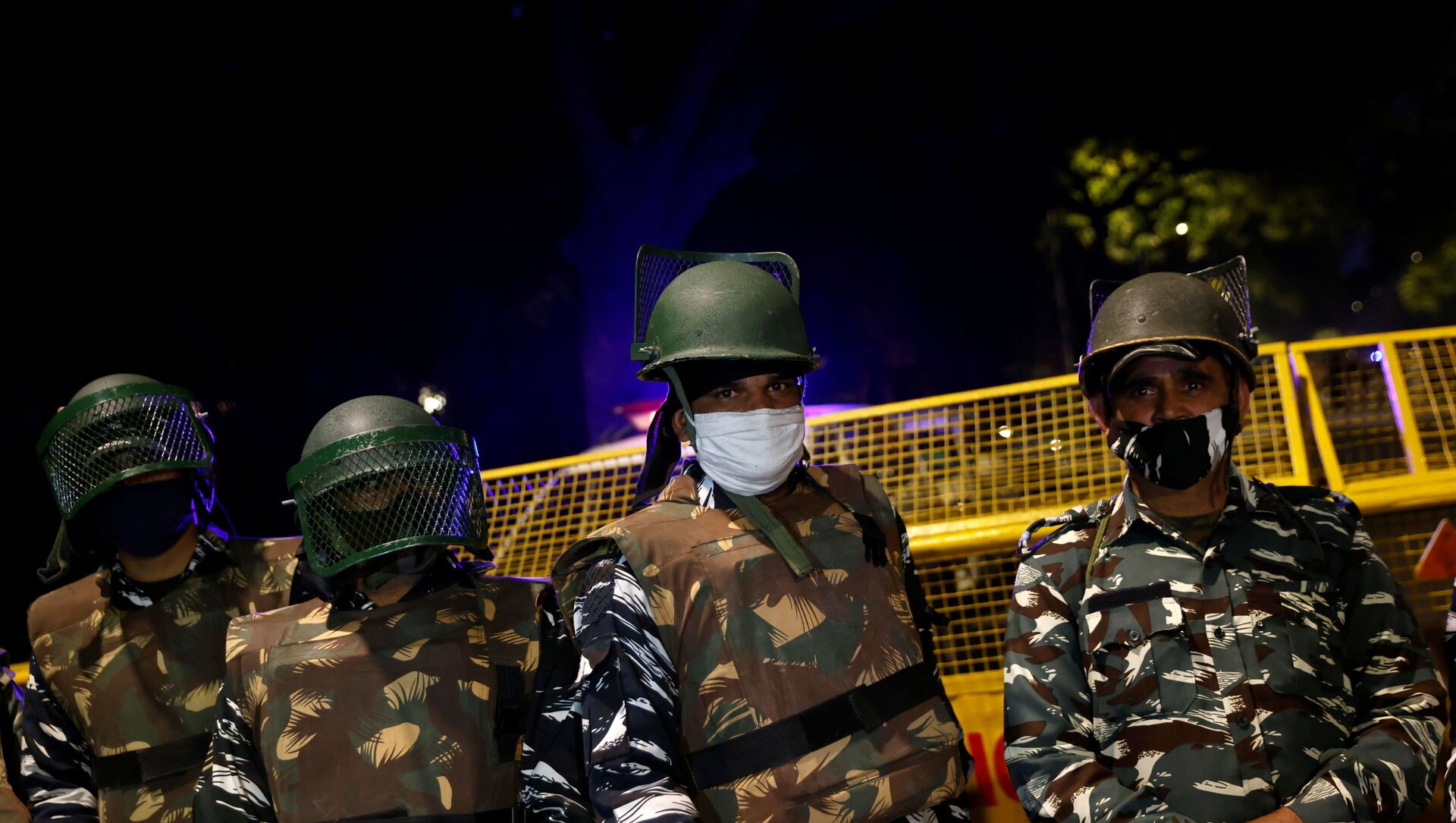A hand-written letter reportedly containing a death threat has been discovered at the scene of an explosion outside the Israeli embassy in New Delhi last week, warning the ambassador, Ron Malka, that he could be attacked at any time, according to Israel’s Channel 13 news.
פרסום ראשון: מכתב האיום שהשאירו המחבלים ליד שגרירות ישראל בהודו https://t.co/7gb9CaIcmx pic.twitter.com/rSj0MxTXcs
— Alon Ben-David (@alonbd) January 31, 2021
The peppered with grammatical errors handwritten note in English, claiming to be from the previously unknown “India Hizbollah,” group, according to the report, referred to Malka as a “terrorist of the terrorist nation.” The report featured a photo of the letter, which stated that Malka was “in their crosshairs”, and “we can end your life anytime anywhere.”
Whoever wrote the letter also implied they were averse to spilling “innocent blood”, while seeking to destroy Malka, and declaring that all “participants and partners” of Israeli “terrorist ideology will be no more in existence”.
The death threat also warned to “get ready for a big and better revenge for our heroes.”
Before it concluded by pronouncing : “All that is left is for you to count the days,” the note offered a list of perceived “martyrs”.

The first name on the ‘list’ was that of Qasem Soleimani, Iran’s Islamic Revolutionary Guards Corps (IRGC) commander who was killed at the orders of the US government in a drone strike in January 2020, along with a top Iraqi commander Abu Mahdi al-Muhandis.
Also on the list was the name of nuclear scientist Mohsen Fakhrizadeh, killed in a November 2020. Tehran has accused Tel Aviv of being behind the targeted assassination of Fakhrizadeh, with Israel neither confirming, nor denying its involvement in the killing.
Attack at Delhi Embassy
Israeli explosive experts as well as Mossad intelligence agency were involved in the investigation into the low-intensity bomb explosion which occurred on Friday evening in New Delhi, just outside the Israeli Embassy, according to Channel 12.
A relatively unknown terrorist group, Jaish-ul-Hind, has already claimed responsibility for the blast, according to Indian media, something which is being looked into by Indian security services.
An unknown entity calling itself "jaish ul hind" has taken responsibility of today's blast outside Israel embassy. It has released the first such pic late last night on social media. pic.twitter.com/P30qs0sY3p
— Abhinandan Mishra (@mishra_abhi) January 30, 2021
Currently, the focus was on Indian students who studied in Iran and were suspected of operating in India under Iranian orders, claimed the report.
It was also reported that police were studying CCTV footage, which appeared to show two suspects that would be questioned over possible involvement in the incident. The blast was caused by a “very low-intensity improvised device” that shattered windows of nearby car, according to a Friday police statement.

Security had been heightened at missions around the world as Israeli authorities were treating the blast as a suspected terror attack aimed at the embassy, reported The Times of Israel.
Ambassador Malka was quoted by Indian news agency Press Trust of India (PTI) as saying on Saturday that Israeli missions have been on high alert for weeks over the possibility of an attack, with Indian authorities leading the investigation.
Asked in the PTI interview if the attack could have been linked to the normalisation of ties between Israel and the United Arab Emirates (UAE) and Bahrain last year, Malka added that Tel Aviv would not allow itself to be intimidated.
"These attacks by those seeking destabilisation in the (West Asia) region cannot stop us or scare us. Our peace efforts will continue uninterrupted," said Malka.
Known as the ‘Abraham Accords’, the deals brokered by the Donald Trump administration mark the first time since 1994 that a Gulf state has established full diplomatic ties with the Jewish state.
Decades after Egypt and Jordan established diplomatic ties with Israel, in 2020, Israel signed Washington-brokered agreements establishing diplomatic relations with four Arab League countries: Bahrain, the United Arab Emirates, Sudan and Morocco.
However, Iran displayed deep apprehension about the rapprochement with Israel by these states, warning them that they would be responsible for any “instability” in the region.


